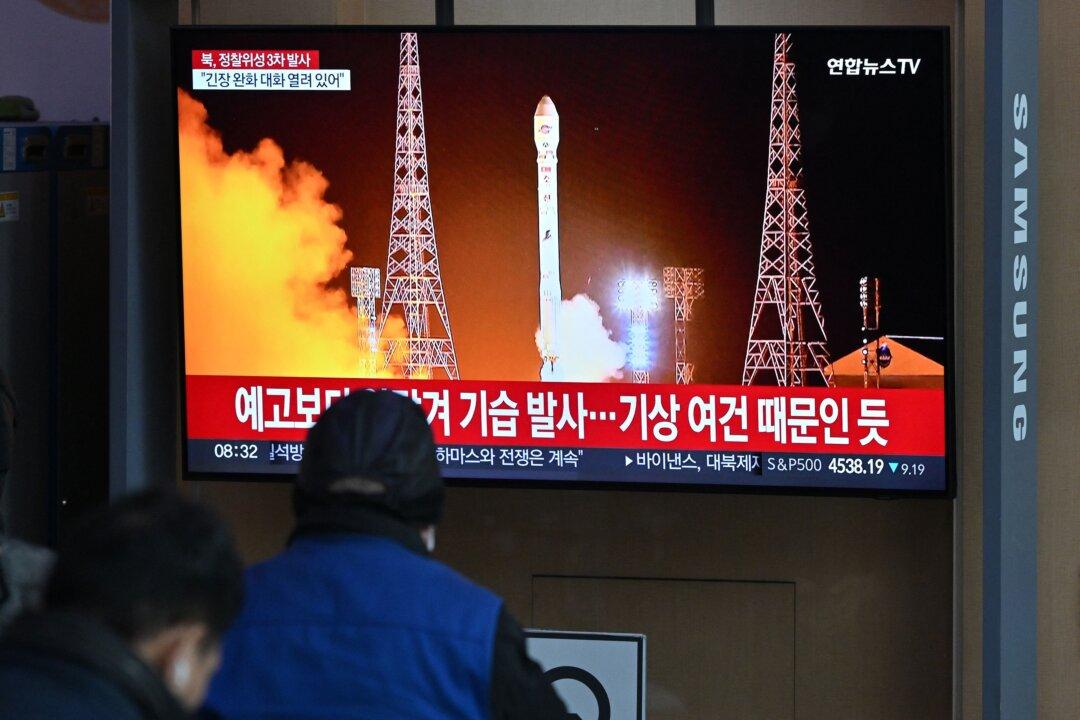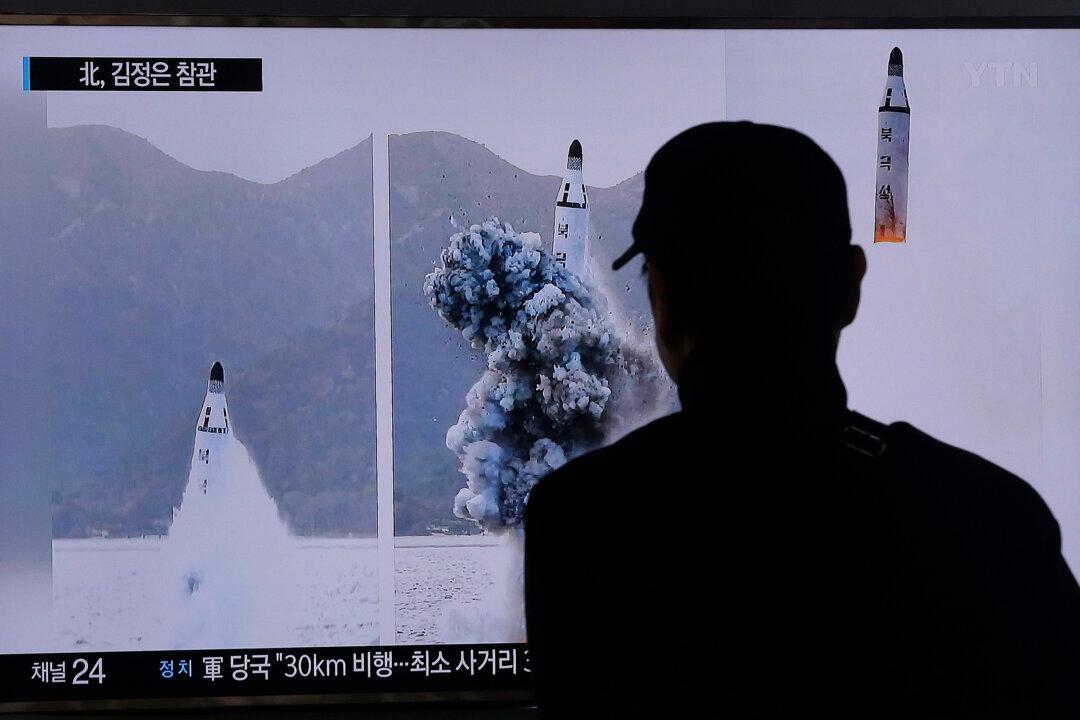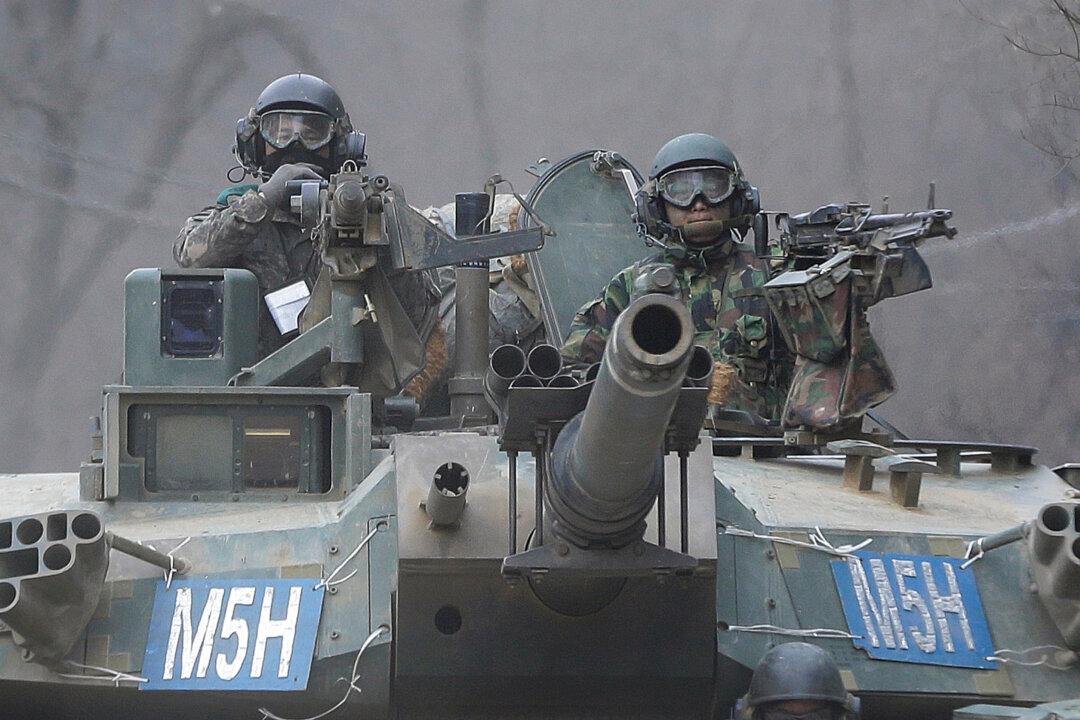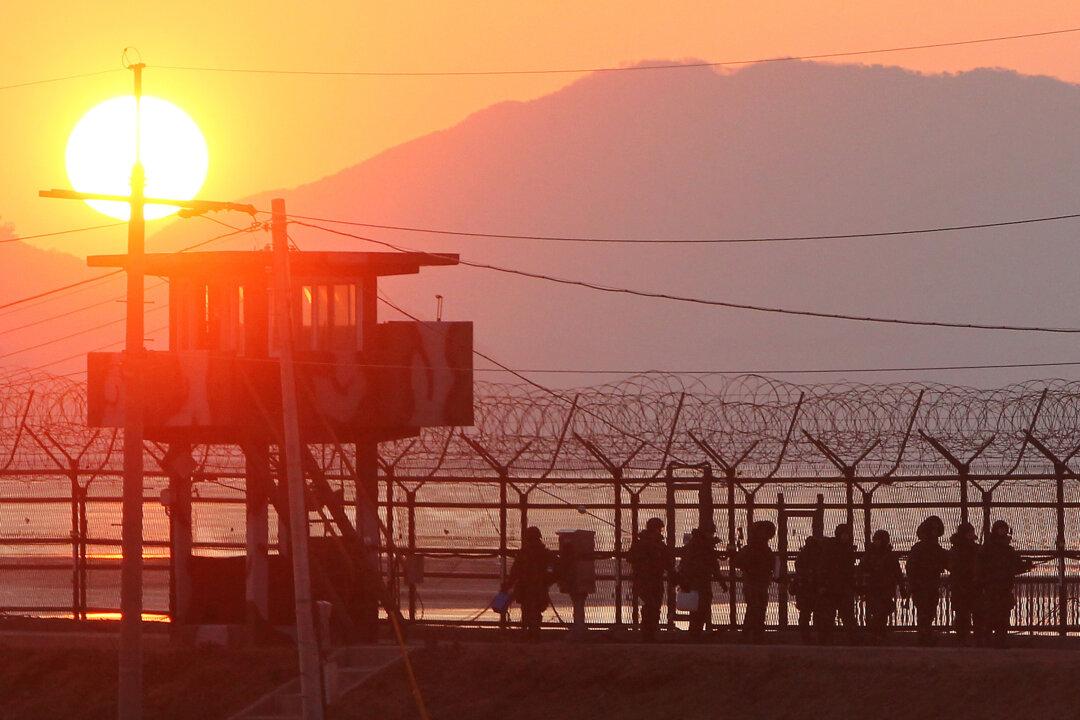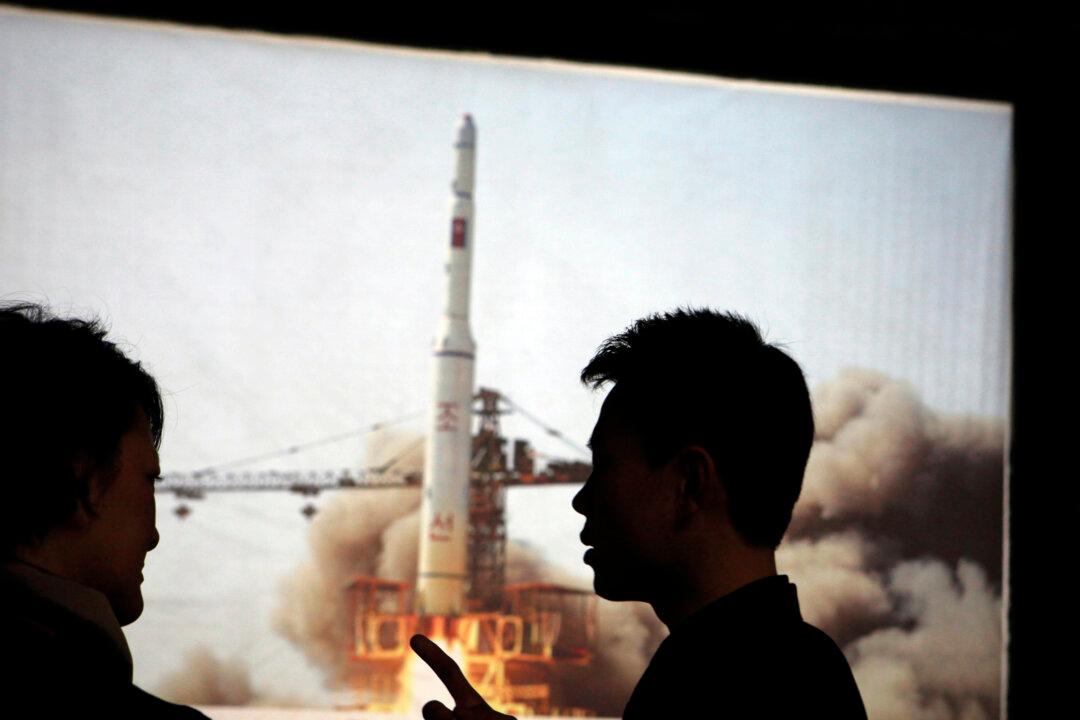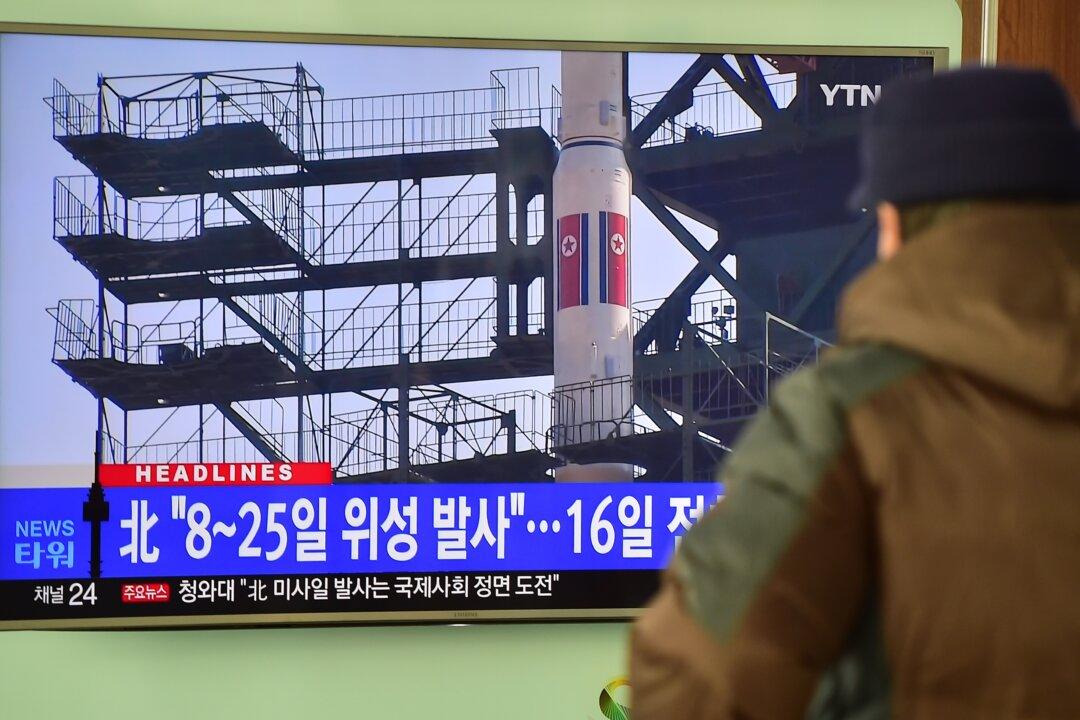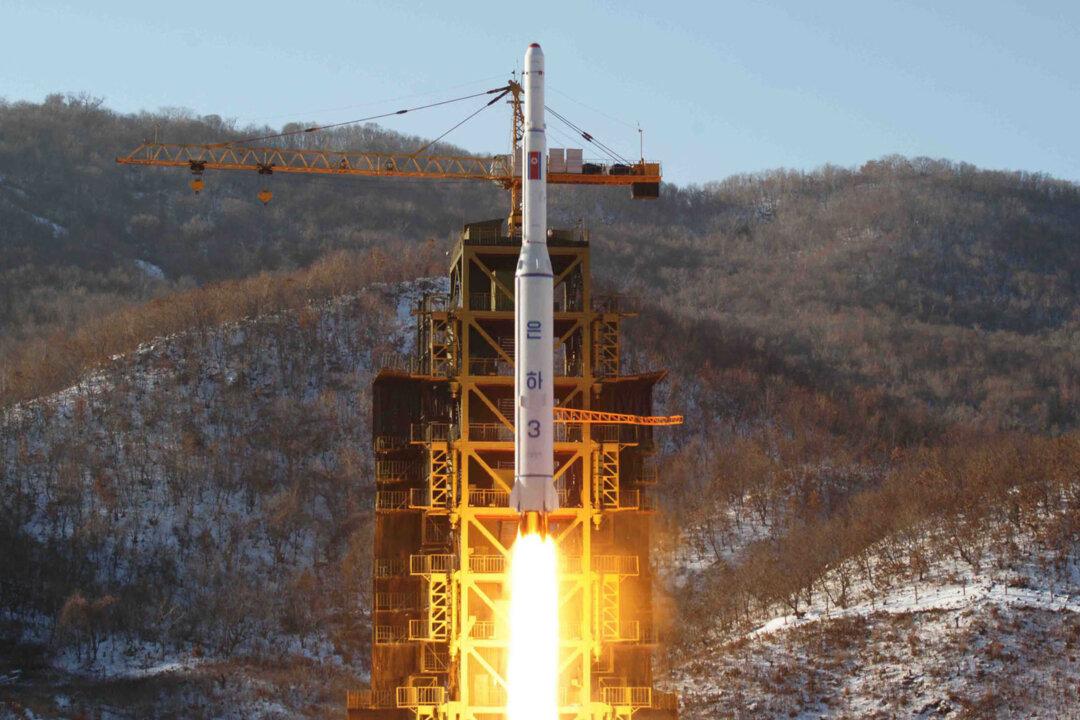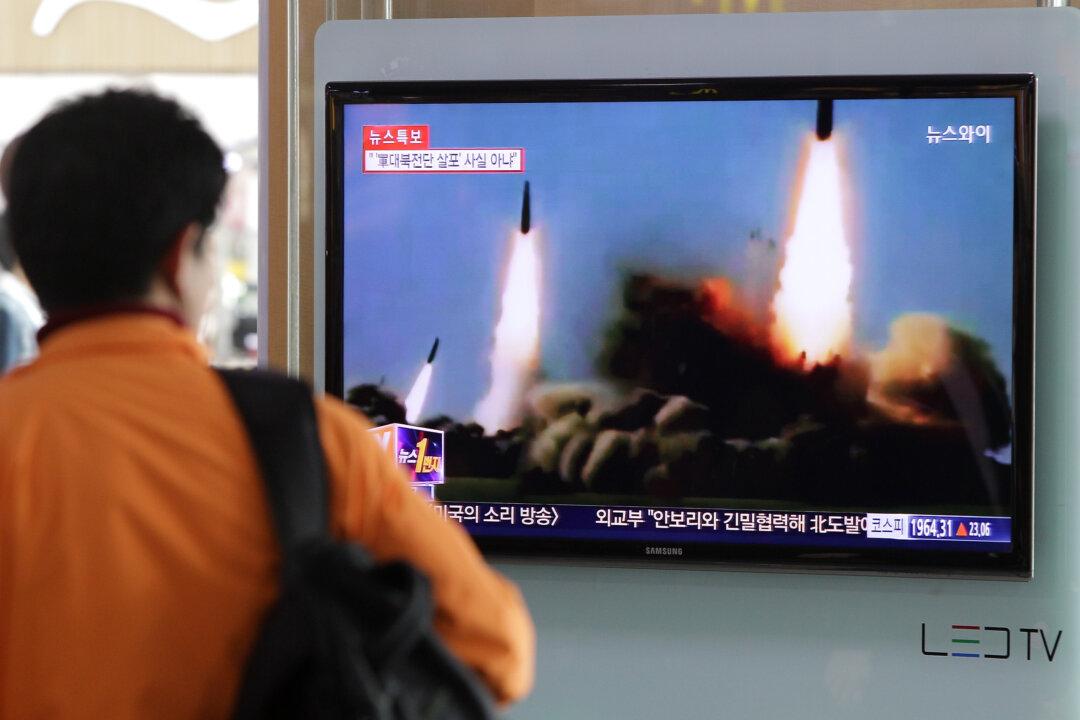Focus
ballistic missile technology
LATEST
|
North Korea Claims Successful Test of Submarine-Fired Missile
North Korea said Sunday that it successfully test-fired a ballistic missile from a submarine and warned of its growing ability to cut down its enemies with a “dagger of destruction.”
|
Missing the Big Picture, US Policy on North Korea Could Bring Disaster
So far in 2016, North Korea has tested an atomic weapon and long-range missile. The U.N. Security Council responded with sanctions amid hope that China might contain a belligerent ally. The world expects the U.S. to monitor international developments, and those not posing immediate danger or causing global media alarm are often put to the side with a cursory response. “Yet these important but not necessarily urgent problems contain the seeds of a potentially larger disaster and can grow into a deadly menace that is ultimately impossible to ignore,” explains Paul Bracken, author and Yale professor of political science and management. “One danger of being the sole superpower is getting overwhelmed by immediate, urgent issues while other important issues are repeatedly kicked down the road.“ Bracken describes a game theory strategy by which a player distracts a strong opponent with multiple pressure points. The U.S. errs by treating aggression, whether in the South China Sea or from North Korea, as isolated incidents rather than “connecting individual strategies across the fronts creates an altogether more effective approach.”
|
North Korea Escalates War of Words in Standoff With Seoul
North Korea responded to an unusually harsh verbal attack by South Korea’s president against the North’s leader and its recent nuclear test and rocket launch with a characteristically colorful invective of its own Saturday, calling her policy traitorous and adding that Washington’s newly enacted sanctions are “laughable.”
|
Darkness at High Noon in Korea
As the world focuses on the war in Syria, the refugee crisis in Europe, and the primary slugfest in the U.S., the two Koreas are heading toward a catastrophe in the Far East.
|
Facing New Sanction Threats, North Koreans Defiant as Ever
With a storm brewing all around them, North Koreans have their own take on things—and it’s decidedly unapologetic.
|
US Deploys More Patriot Missiles in South Korea
The United States temporarily deployed an additional Patriot missile battery in South Korea in response to North Korea’s nuclear test and a long-range rocket launch, ahead of talks next week to set up an even more sophisticated U.S. missile defense in a move that has worried China and Russia.
|
World Condemns North Korea’s Rocket Launch and Misses the Point Again
The collective global roar of disapproval that greeted North Korea’s launch of its satellite Kwangmyongsong-4 is a familiar sound by now. The universal fury at Pyongyang’s actions was similar to that which greeted its purported recent underground test of a hydrogen bomb.
|
Storms May Brew, but in North Korea Pride Over New Satellite
Hours after the rest of the world already knew, North Korea’s state media triumphantly announced in a special news bulletin to the nation Sunday it had successfully launched a satellite into orbit, calling it a major milestone in the nation’s history and the “greatest gift of loyalty” to the country’s young leader, Kim Jong Un.
|
North Korea Moves Up Rocket Launch Window to Feb. 7-14
North Korea has moved up the window of its planned long-range rocket launch to Feb. 7-14, South Korea’s Defense Ministry said Saturday. The launch, which the North says is an effort to send a satellite into orbit, would be in defiance of repeated warnings by outside governments who suspect it is a banned test of ballistic missile technology.
|
North Korea Plans Satellite Launch This Month
Weeks after its fourth nuclear test, North Korea announced plans Tuesday to launch an Earth observation satellite on a rocket later this month, in what critics see as a covert test of banned technology for a ballistic missile that could strike the U.S. mainland.
|
North Korea Restarts Nuclear Weapons Facility, Hints at Nuclear Test
For the second day in a row, Pyongyang raised the ante on rhetoric suggesting it might conduct a prohibited nuclear or missile test in violation of numerous United Nations resolutions.
|
|
North Korea Claims Successful Test of Submarine-Fired Missile
North Korea said Sunday that it successfully test-fired a ballistic missile from a submarine and warned of its growing ability to cut down its enemies with a “dagger of destruction.”
|
Missing the Big Picture, US Policy on North Korea Could Bring Disaster
So far in 2016, North Korea has tested an atomic weapon and long-range missile. The U.N. Security Council responded with sanctions amid hope that China might contain a belligerent ally. The world expects the U.S. to monitor international developments, and those not posing immediate danger or causing global media alarm are often put to the side with a cursory response. “Yet these important but not necessarily urgent problems contain the seeds of a potentially larger disaster and can grow into a deadly menace that is ultimately impossible to ignore,” explains Paul Bracken, author and Yale professor of political science and management. “One danger of being the sole superpower is getting overwhelmed by immediate, urgent issues while other important issues are repeatedly kicked down the road.“ Bracken describes a game theory strategy by which a player distracts a strong opponent with multiple pressure points. The U.S. errs by treating aggression, whether in the South China Sea or from North Korea, as isolated incidents rather than “connecting individual strategies across the fronts creates an altogether more effective approach.”
|
North Korea Escalates War of Words in Standoff With Seoul
North Korea responded to an unusually harsh verbal attack by South Korea’s president against the North’s leader and its recent nuclear test and rocket launch with a characteristically colorful invective of its own Saturday, calling her policy traitorous and adding that Washington’s newly enacted sanctions are “laughable.”
|
Darkness at High Noon in Korea
As the world focuses on the war in Syria, the refugee crisis in Europe, and the primary slugfest in the U.S., the two Koreas are heading toward a catastrophe in the Far East.
|
Facing New Sanction Threats, North Koreans Defiant as Ever
With a storm brewing all around them, North Koreans have their own take on things—and it’s decidedly unapologetic.
|
US Deploys More Patriot Missiles in South Korea
The United States temporarily deployed an additional Patriot missile battery in South Korea in response to North Korea’s nuclear test and a long-range rocket launch, ahead of talks next week to set up an even more sophisticated U.S. missile defense in a move that has worried China and Russia.
|
World Condemns North Korea’s Rocket Launch and Misses the Point Again
The collective global roar of disapproval that greeted North Korea’s launch of its satellite Kwangmyongsong-4 is a familiar sound by now. The universal fury at Pyongyang’s actions was similar to that which greeted its purported recent underground test of a hydrogen bomb.
|
Storms May Brew, but in North Korea Pride Over New Satellite
Hours after the rest of the world already knew, North Korea’s state media triumphantly announced in a special news bulletin to the nation Sunday it had successfully launched a satellite into orbit, calling it a major milestone in the nation’s history and the “greatest gift of loyalty” to the country’s young leader, Kim Jong Un.
|
North Korea Moves Up Rocket Launch Window to Feb. 7-14
North Korea has moved up the window of its planned long-range rocket launch to Feb. 7-14, South Korea’s Defense Ministry said Saturday. The launch, which the North says is an effort to send a satellite into orbit, would be in defiance of repeated warnings by outside governments who suspect it is a banned test of ballistic missile technology.
|
North Korea Plans Satellite Launch This Month
Weeks after its fourth nuclear test, North Korea announced plans Tuesday to launch an Earth observation satellite on a rocket later this month, in what critics see as a covert test of banned technology for a ballistic missile that could strike the U.S. mainland.
|
North Korea Restarts Nuclear Weapons Facility, Hints at Nuclear Test
For the second day in a row, Pyongyang raised the ante on rhetoric suggesting it might conduct a prohibited nuclear or missile test in violation of numerous United Nations resolutions.
|

